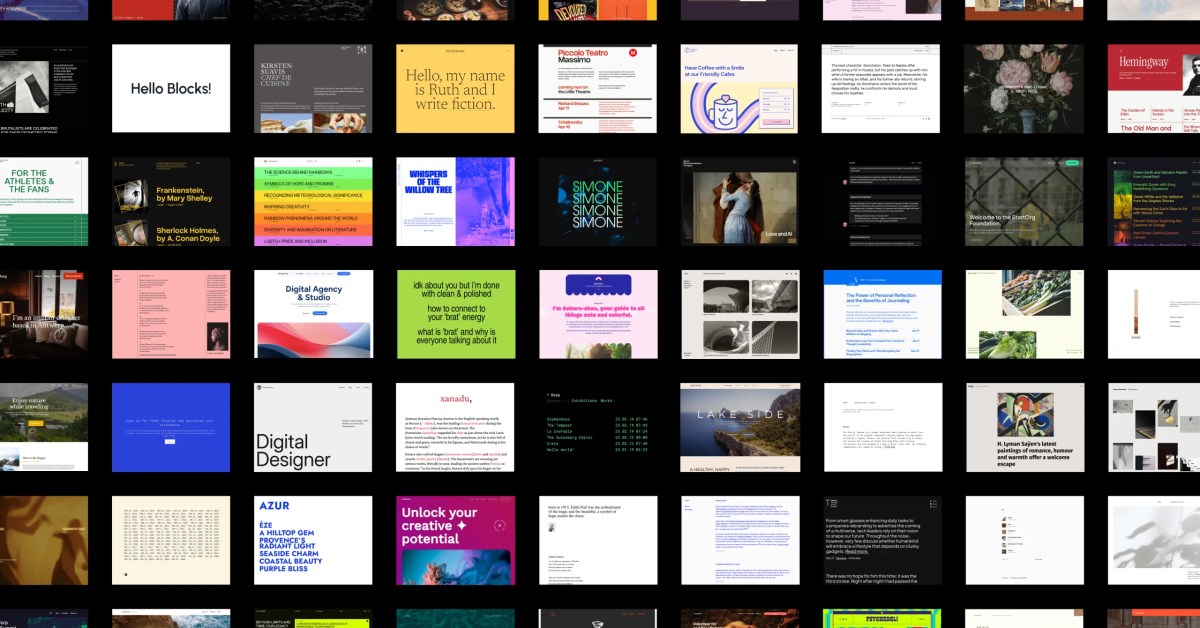Celebrating a Significant Milestone: 1,000 Block Themes Created for WordPress
In an impressive feat, the WordPress community has reached a remarkable milestone—creating 1,000 block themes in nearly 1,000 days. This achievement highlights the community’s dedication to utilizing the full potential of the Site Editor, unleashing a multitude of creative possibilities for users around the globe.
The Evolution and Impact of Block Themes
Block themes were first introduced with WordPress version 5.9. Since then, they have evolved significantly, offering enhanced flexibility and functionality to themers, users, and agencies. The design tools available today enable customization of nearly every aspect of a website. With the introduction of style variations, users can now transform the entire appearance of their site with just a few clicks. Moreover, WordPress offers curation options that allow users to tailor the editing process itself, providing a more personalized and streamlined experience.
The success of block themes is a testament to the early adopters who embraced the new features with enthusiasm and provided invaluable feedback and testing. This collaborative effort has shaped the block themes we see today, and the journey is far from over. The community is eager to continue pushing the boundaries and exploring new possibilities with block themes.
Exploring Block Themes: Resources and Inspirations
For those who have not yet delved into the world of block themes, there is a wealth of resources available to get started and find inspiration. The WordPress website offers a dedicated section where users can explore various block themes and learn about their functionalities. These resources are designed to help both beginners and experienced users discover the creative potential that block themes offer.
Community Contributions and Collaboration
The creation of 1,000 block themes would not have been possible without the collaborative efforts of the WordPress community. It is a collective achievement that deserves celebration and recognition. The Theme Team has dedicated a post to commemorate this milestone, inviting community members to share their favorite block themes and express gratitude to those who have contributed to this success.
The post is an opportunity for users to showcase their work, share experiences, and acknowledge the contributions of others. By engaging with the community, users can gain insights into different design approaches and discover new themes that align with their creative vision.
The Future of Block Themes in WordPress
As the WordPress community continues to innovate and expand the capabilities of block themes, the future looks promising. The ongoing development aims to further enhance the user experience and provide even more customization options. By building on the foundation established by the first 1,000 themes, the community is poised to create even more dynamic and versatile themes that cater to a wide range of design preferences and functional requirements.
Conclusion
The creation of 1,000 block themes is a monumental achievement that underscores the power of collaboration and innovation within the WordPress community. This milestone reflects the commitment to pushing the boundaries of what is possible and providing users with tools that empower them to create unique and engaging websites.
As we celebrate this accomplishment, it is important to acknowledge the contributions of all those who have played a role in reaching this milestone. Whether through design, testing, feedback, or support, every effort has been instrumental in shaping the block themes we know today.
For those interested in exploring block themes further, the resources available on the WordPress website offer a wealth of information and inspiration. By engaging with the community and embracing the possibilities of block themes, users can continue to contribute to this exciting journey and help shape the future of WordPress.
For more information on block themes and to explore the available resources, visit the WordPress Themes Repository.
For more Information, Refer to this article.



































